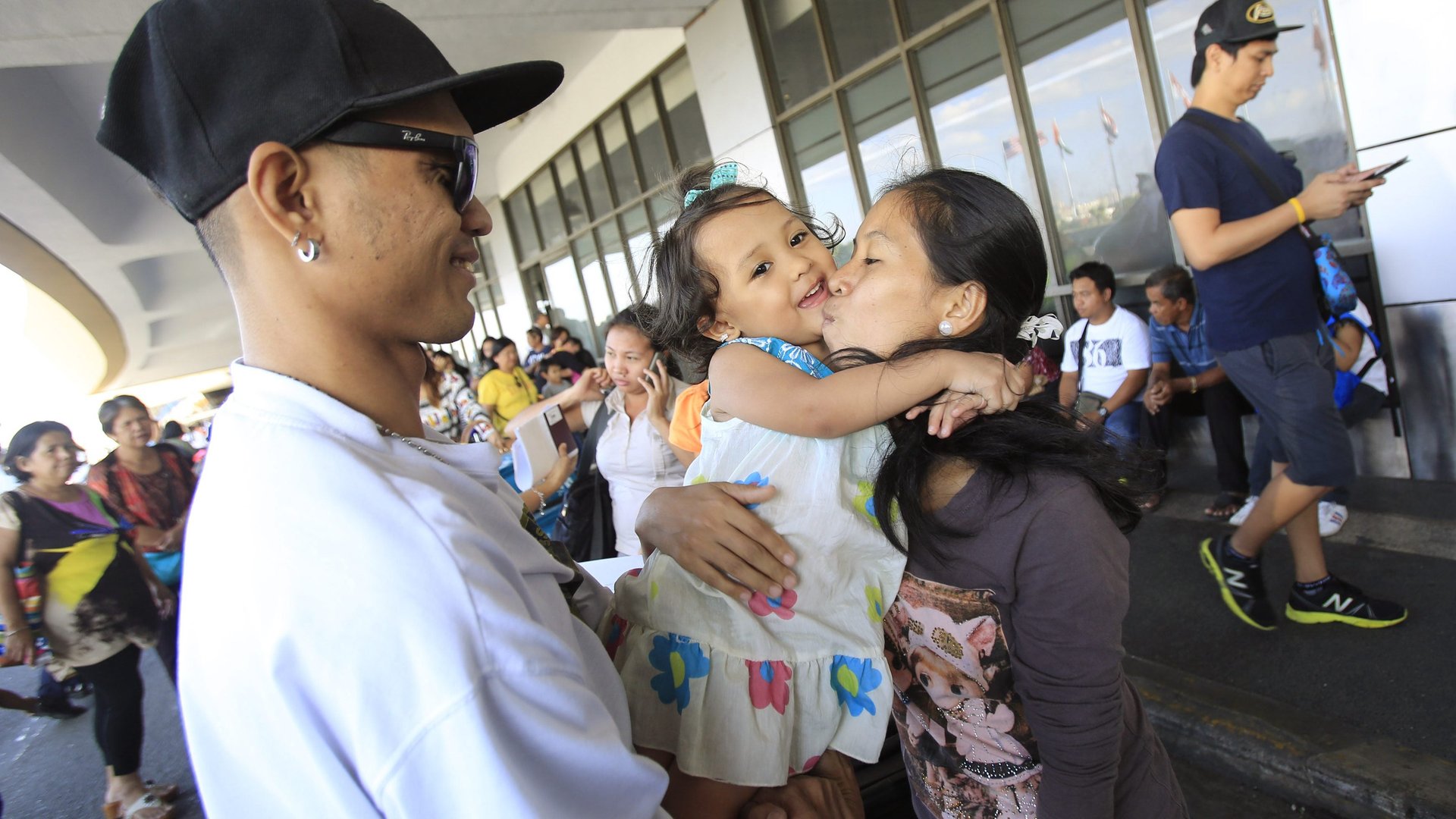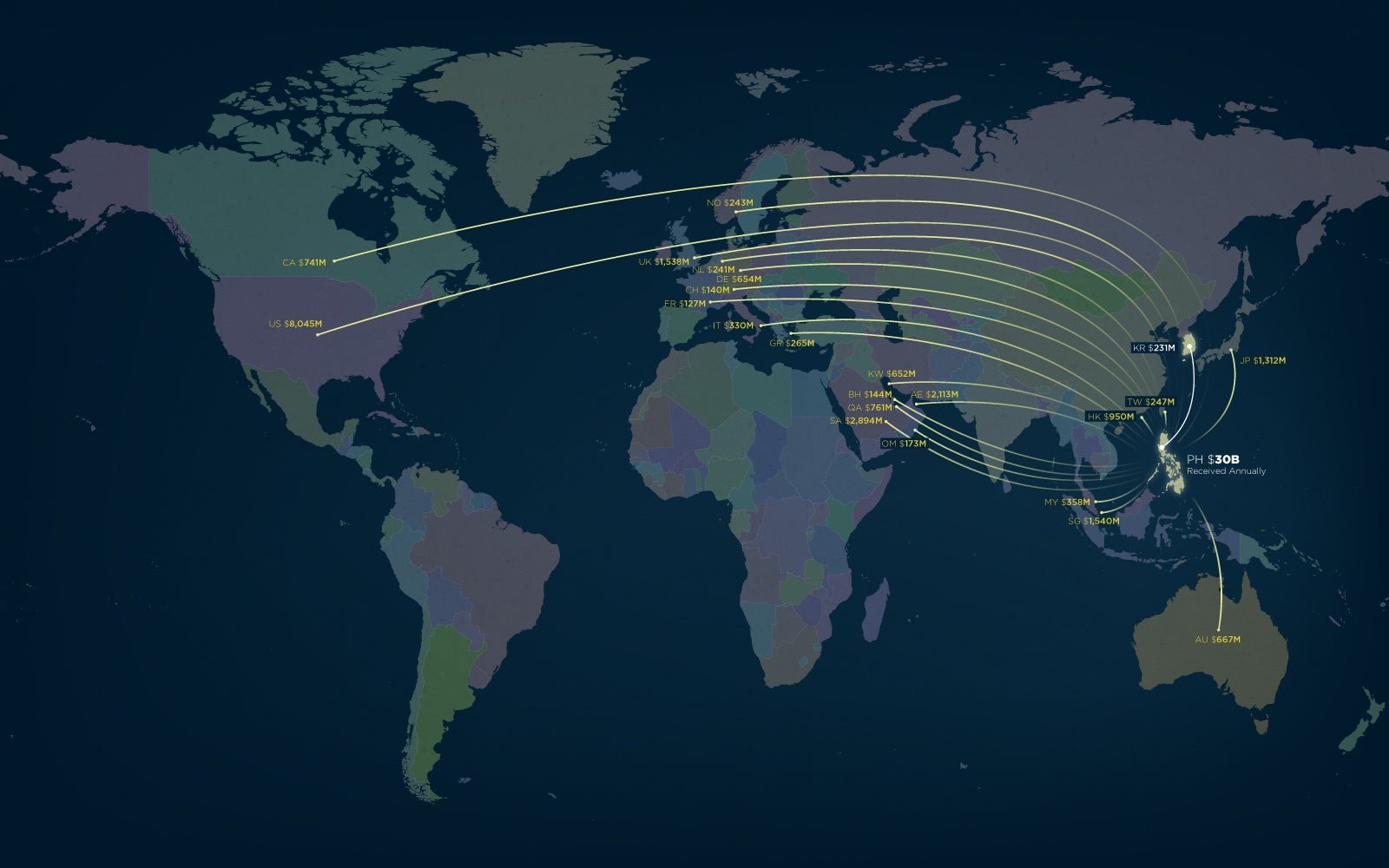There’s a $500 billion remittance market, and Bitcoin startups want in on it
At just over six years old, Seoul-based KakaoTalk has more than 170 million registered users on its flagship chat app, and enjoys nearly 93% market penetration in South Korea. But when the $2.9 billion company made its first-ever overseas investment this spring, it was a surprising one: a 40% stake in Satoshi Citadel Industries (SCI), a Manila-based Bitcoin startup with no connection to messaging.


At just over six years old, Seoul-based KakaoTalk has more than 170 million registered users on its flagship chat app, and enjoys nearly 93% market penetration in South Korea. But when the $2.9 billion company made its first-ever overseas investment this spring, it was a surprising one: a 40% stake in Satoshi Citadel Industries (SCI), a Manila-based Bitcoin startup with no connection to messaging.
The decision is puzzling, unless you know something about how money moves between the Philippines and South Korea. While there are only 60,000 migrant Filipinos working in South Korea—far fewer than in neighboring Japan—they collectively send home more than $231 million in personal funds each year. That works out to about $300 per person, 50% higher than the global average.
A few large players tend to facilitate these payments, and the lack of competition in certain markets (including the Philippines-South Korea corridor) can make costs prohibitive. Enter Kakaotalk, one of a growing crop of companies aiming for a cheaper alternative.
An expensive habit
The typical international money transfer requires loads of communication between the persons on either end of it. They have to calculate exchange rates, synchronize amounts, collect personal details, agree on a transfer method, and then confirm when the cash has been sent and received.
Globally, the senders are most often migrant workers—people who have temporarily relocated to find better-paying jobs in other countries. Their beneficiaries are family members or friends back home, who depend on this income to make ends meet.
Worldwide, 230 million people send $500 billion in remittances each year, primarily using firms like Western Union, Moneygram, and RIA, which together control 1.1 million retail locations and account for more than 25% of the world’s annual remittance volume. But as smartphones become increasingly ubiquitous, chat apps have begun to play a larger role in enabling these types of routine financial transactions. Earlier this year, both Viber and WeChat announced partnerships with Western Union that allow US users to send money to non-US beneficiaries from within their respective apps.
This type of collaboration could solve some of remittances’ logistical hurdles, but cost remains a factor. Transferring $20 from the US to the Philippines via Viber and Western Union incurs a flat $4 fee, along with a 4% foreign exchange fee. After being converted to the Philippine peso, the money arrives at its destination as $15.15, a loss of nearly $5.
That may not seem worse than an average ATM fee, but the vast majority of Asian migrants are domestic helpers, crewmen, and construction workers. Most send home the equivalent of $200 each month—often more than a quarter of their personal income. The roughly $12 in fees they must pay to transfer that amount is equivalent to half a day’s wages.

A bitcoin bridge
For more than a year, startups have been working on this problem by building Bitcoin alternatives to traditional money-transfer methods. Senders pay for their transactions in local currency, and the cash is converted into bitcoins before being transmitted to the destination country. Once there, the bitcoins are converted into the local currency of the beneficiary. The facilitating company takes a cut during the currency exchange, as with a traditional provider, and neither customer is necessarily aware that bitcoins were involved.
The nascent industry has spawned at least three new players in the past year—Payphil, Sentbe, and SCI—and more established Bitcoin exchanges like Korbit and Coinplug are also entering the market. They seem to be having an impact—that $12 charge on a $200 transfer is more like $6 with Bitcoin. Insiders estimate that Bitcoin-powered transactions now account for 20% of the remittances flowing between South Korea and the Philippines each year.
But challenges remain. Migrant workers are often wary of new technologies promising big savings. And while chat apps help alleviate this trust deficit—Viber, WeChat, and Kakaotalk are already the custodians of their users’ most personal information—even they don’t solve a more fundamental issue. Internet penetration in emerging Asian markets like the Philippines is often less than 40%, putting a hard cap on the reach of digital innovation.
Because of their customers’ dependence on hard currency, remittance providers must also have cash-out partners in every town and district, which tacks on additional costs and introduces security risks. Digital currency can’t magically transform into paper money when you need to buy vegetables at the local market, or pay transit fare to get your kids to school.
Contending with an offline population may prove the most confounding aspect of the remittance puzzle. But whatever the makeup of this new frontier in money transfers, an entire industry is betting on Bitcoin and mobile messaging as fundamental ingredients.